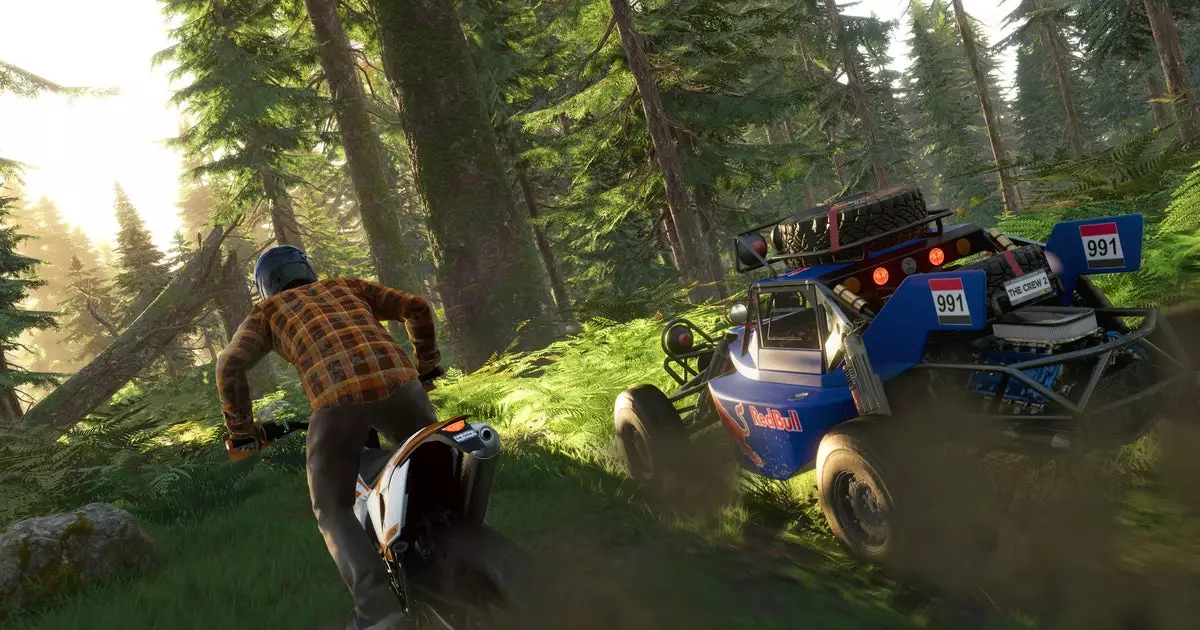In an era dominated by online gaming ecosystems, Ubisoft’s recent decision to introduce offline modes for both *The Crew 2* and *The Crew Motorfest* stands out as a significant moment in the industry. This move seems to respond to the vocal dissatisfaction surrounding the shutdown of the original *The Crew*. Many gamers felt betrayed when their investment in the game ceased to hold value post-maintenance discontinuation, prompting a backlash that has culminated in ongoing legal action. Ubisoft’s apparent acknowledgment of this issue signals a shift that prioritizes player trust and satisfaction.
Playtesting: A Step Towards Community Engagement
Scheduled for April 30th, the playtest for *The Crew 2* is an exciting opportunity for fans to engage with the title in a new light. Producer Gregory Corgie’s announcement comes laden with implications; it suggests that Ubisoft is serious about not only improving the game experience but also involving the community in real-time development processes. However, the selective nature of the playtest access, based on configurations and prior engagement with the community, raises questions. While it’s understandable to want to test with a curated group, this exclusivity has the potential to alienate players who feel left out, despite their loyalty.
The Technical Challenges Ahead
Corgie’s commentary on the hybrid offline mode highlights the complexities of transitioning a game originally designed for continuous online play to one that accommodates offline experiences. The fact that Ubisoft is not launching a fully functional offline mode immediately indicates a careful consideration of performance and stability, which is critical to a game that relies heavily on live interactions. The challenge remains: can Ubisoft deliver a robust offline experience that meets the expectations of players who have long been accustomed to uninterrupted online gameplay?
Multiplayer Features and the Ongoing Lawsuit
One of the caveats of the forthcoming offline mode is the absence of online multiplayer features, a point Corgie emphasized in his update. This limitation raises the stakes for gamers split between wanting to play offline without restrictions and the desire for a complete gaming experience that includes competitive gaming with friends. Furthermore, it opens a broader discussion on the implications of Ubisoft’s moves concerning their active lawsuit. Their position that consumers merely purchase a ‘license’ rather than ownership of the game could backfire amid player discontent, especially if offline and online modes are seen as disparate experiences.
Looking Forward: Transforming Game Ownership
The potential ramifications of adding offline play to *The Crew 2* and *Motorfest* might pervade the wider gaming landscape. As more games grapple with the notion of player rights and ownership, the industry might witness a transformative shift towards models that prioritize consumer needs over strict online dependencies. Ubisoft’s decision could serve as a litmus test for other publishers who may be assessing how they engage with their player communities. If successful, it may encourage developers to rethink their approaches, creating a more flexible gaming environment that fosters longevity and trust with players. The question remains: will Ubisoft’s calculated steps prove to be a turning point or merely an incremental change?

